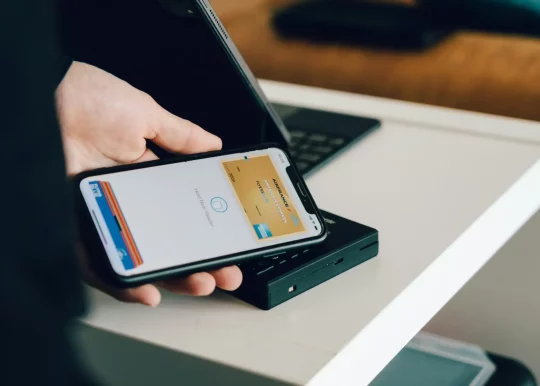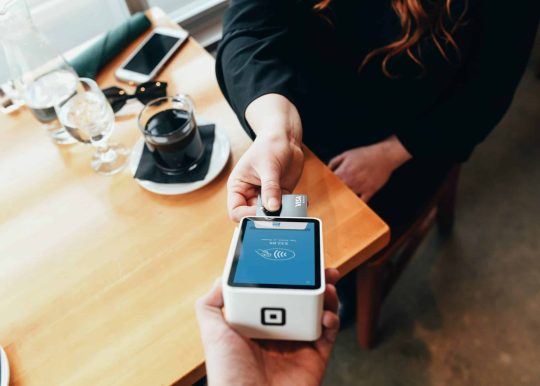Save 45% On Your Credit & Debit Card Processing
Compare providers onscreen in minutes!
Compare providers onscreen in minutes!
Compare providers onscreen in minutes!
Compare providers onscreen in minutes!
Compare providers onscreen in minutes!








Provide business details to customise your quotes.
Evaluate multiple quote and various providers.
Select a supplier as per your requirements & and save.

Provide your requirements.
Evaluate multiple quotations from various providers.
Select a supplier as per your requirements & enjoy savings.
We believe that one size doesn’t fit all. Therefore, we offer flexible
solutions customised to meet your business needs.
We believe that one size doesn’t fit all. Therefore, we offer flexible solutions customised to meet your business needs.
For established businesses, our aim is to provide a cost-effective solution.
For startups or a new businesses seeking a flexible pay-as-you-go plan, we've got you covered.
For established businesses, our aim is to provide a cost-effective solution
For startups or a new businesses seeking a flexible pay-as-you-go plan, we’ve got you covered.
On average our customers save 45% off their portable card processing machine fees, can we save you more?
*Get quotes in seconds
*Get quotes in seconds

*From 12 months contract


*18 months contract


*Device Cost / *No Contract


*Device Cost / *No Contract


*Device Cost / *No Contract


*Device Cost / *No Contract

* Card machines can typically be split into 2 categories, some machines are rented under a contract of 18-24m other card readers are offered pay-as-you-go.
Carefully curated insights are pivotal in acquiring comprehensive knowledge regarding card processing machines in the UK.
Carefully curated insights are pivotal in acquiring comprehensive knowledge
regarding card processing machines in the UK.

Card Processing
22 Feb 2024
If you search card merchant service provider on Google you will find tons of articles with a wide range of…

Card Processing
27 Jan 2024
How do card readers work?When you think about paying with a card at a shop today, you probably imagine card…

Card Processing
27 Jan 2024
As we steer towards a cashless society in the UK, businesses are embracing card machines more than ever. The transition…

Card Processing
6 Oct 2023
As we approach the festive season—a time traditionally associated with bustling high streets, last-minute purchases, and the dependable ring of…

Card Processing
23 Sep 2023
Looking to lower you card processing bills? Use our comparison engine at comparecardprocessing.co.uk for cost-saving solutions. In today’s business landscape,…

Card Processing
8 Aug 2023
We’ve all mostly likely come across a Verified by Visa box that appears during the checkout process, but being able…
It’s simple really, just like comparison sites for utilities or car insurance, you give us your card processing requirements and we compare card machines providers in the UK to give you the best price, all online! We don’t take your details and sell on to other merchant service providers!
NO, we give you an online card payment providers comparison in the UK, allowing you to make an informed choice on the best provider for you. We don’t pretend to be a card processing comparison site, we are one!
Our payment platform compare most of the market in the UK, this includes pay as go card readers like Sumup and Square or traditional merchant service providers like Barclaycard and Clover. Our providers cater all types of business so regardless of if you need a countertop, portable or mobile card reader, we’ve got you covered.
Our extensive comparison engine, uses your requirements and previous bill costs to see if any of our panel of providers will work out cheaper, are data for the last 12months show over 85% of customers can find cheapest card payment machine costs in the UK and we average a whopping 45% saving.
New to taking card? Your best to get a card reader which doesn’t have a contract and is a doddle to setup. Check out PAYG card reader page to compare all the top providers.
It’s simple really, just like comparison sites for utilities or car insurance, you give us your card processing requirements and we compare card machines providers in the UK to give you the best price, all online! We don’t take your details and sell on to other merchant service providers!
NO, we give you a comparison of different merchant services online, allowing you to make an informed choice on the best provider for you. We don’t pretend to be a card processing comparison site, we are one!
We compare most of the market, this includes pay as go card readers like Sumup and Square or traditional merchant service providers like Barclaycard and Clover. Our providers cater all types of business so regardless of if you need a countertop, portable or mobile card reader, we’ve got you covered.
Our extensive comparison engine, uses your requirements and previous bill costs to see if any of our panel of providers will work out cheaper, are data for the last 12months show over 85% of customers can find cheaper rates and we average a whopping 45% saving.
New to taking card? Your best to get a card reader which doesn’t have a contract and is a doddle to setup. Check out PAYG card reader page to compare all the top providers.

Top 5 Best Card Processing Services in the UK for your business.

Unfolding the best card reader for your small business in 2023.
Compare Card Processing is a trading name of Savepay Ltd. Reg in England No. 10147163. Registered Office: International House, 24 Holborn Viaduct, London, EC1A 2BN.
* All your information is held securely and we never give your details to 3rd parties.
Compare Card Processing is a trading name of Savepay Ltd. Reg in England No. 10147163. Registered Office: International House, 24 Holborn Viaduct,
London, EC1A 2BN.
Compare Card Processing: Your go-to site for insights to choose the ideal provider for your card processing needs.
© 2024 Compare Card Processing. All Rights Reserved.
Compare Card Processing is a trading name of Savepay Ltd. Reg in England No. 10147163. Registered Office: International House, 24 Holborn Viaduct, London, EC1A 2BN.
* All your information is held securely and we never give your details to 3rd parties.
* All your information is held securely and we never give your details to 3rd parties.
© 2024 Compare Card Processing. All Rights Reserved.